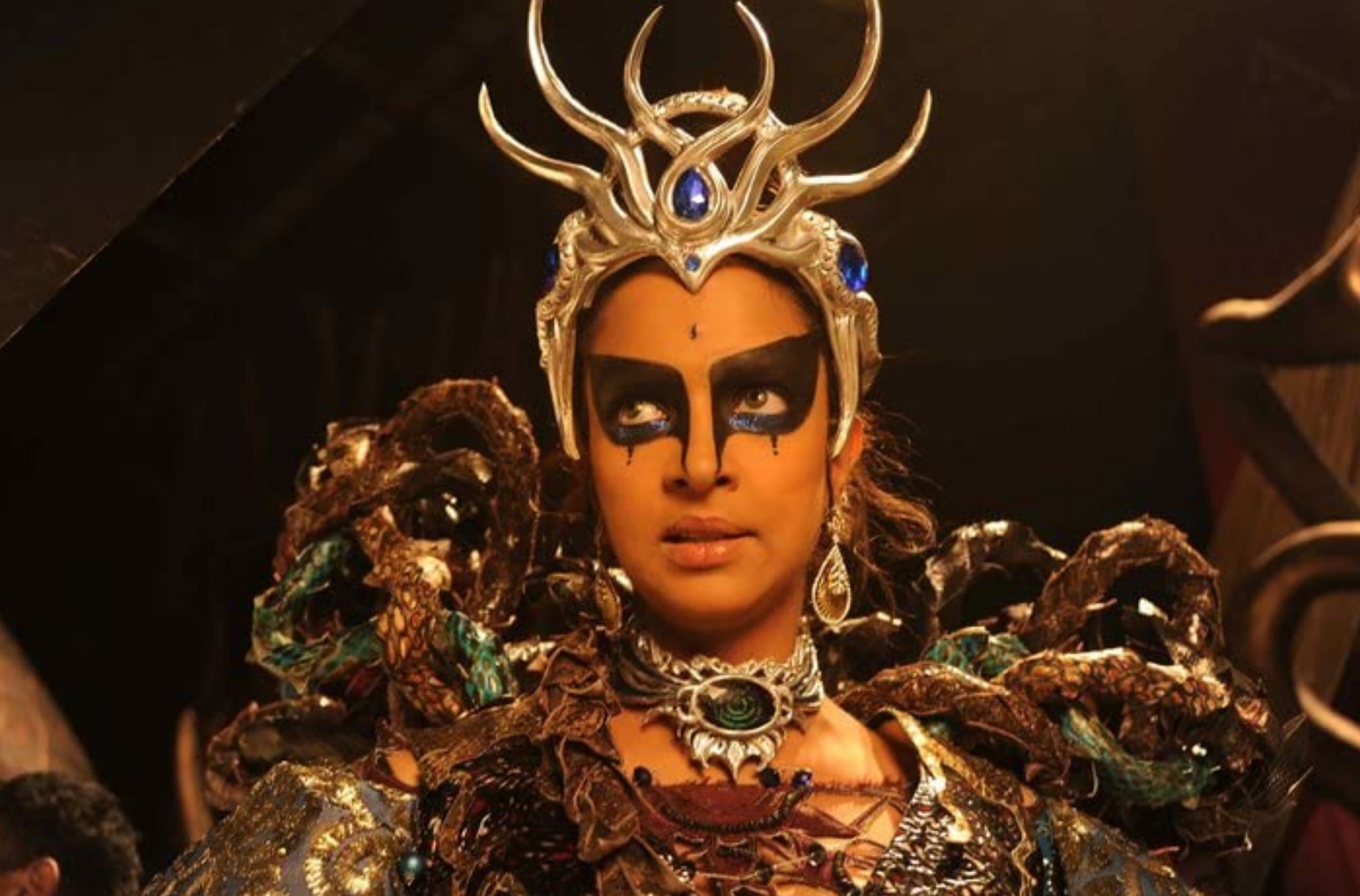
- Film
Tollywood –Telugu Cinema in India
To most film fans, Indian cinema is synonymous with Bollywood, the Hindi-language film industry based in Mumbai (formerly Bombay) known for its commercial films with melodramatic plots, song-and-dance numbers, star-crossed lovers, mustache-twirling villains, and prostitutes with hearts-of-gold.
But South Indian cinema has been thriving for decades even though it has been mostly ignored by Western audiences until the success of the blockbuster RRR cast a spotlight on Tollywood, the Telugu-language film industry based in Hyderabad. Since the pandemic, Tollywood is the largest in terms of box office grosses in India for multiple reasons including the reopening of theaters faster in the South after Covid, and local audiences turned off by the Western-themed Bollywood films that don’t resonate with them. The media consulting firm Ormax estimates that Tollywood grossed $212 million last year; Bollywood made $197 million.
Films are also made in Malayalam, Tamil and Kannada, other South Indian languages, but it is Tollywood that seems to have captured audiences’ imaginations with its epic films, some based on Indian mythology, with testosterone-laden heroes, over-the-top histrionics, frantic action scenes, and sophisticated special effects. They are distributed all over India and the Indian diaspora, dubbed in Hindi and other regional languages for exhibition, and subtitled for streaming.
The father of Telugu cinema is Raghupathi Venkaiah Naidu, born in 1869, who started out as a photographer. He later established a photo studio, imported a “Chrono Mega Phone” – a sound-synching device from France – and made short films that he took to audiences across South India. He then opened several cinemas, a film library and a school to teach cinema techniques. His 1921 film, Bhishma Pratigna is considered to be the first Telugu feature film. After making several films with mostly religious themes, he was bankrupted by the rise of the East India Film Company.
But South Indians are avid filmgoers and the industry thrived, more filmmakers following Naidu’s lead, primarily focusing on mythological and religious subjects. The first talkie was made in 1931 by H.M. Reddy called Bhakta Prahlada, followed by Kalidas which was shot in both Tamil and Telugu. Social themes then became prevalent and were set against modern-day backdrops.
Till the 1940s, Tollywood’s headquarters was in Chennai, with several studios established in that city. Then the industry moved to Hyderabad when prominent actor N.T. Rama Rao was elected Chief Minister of Andhra Pradesh in the 1990s. (NTR, as he is known, is the grandfather of RRR actor NTR, Jr.) Several studios were set up in Hyderabad, including Annapurna Studios and Ramoji Film City, the latter being the largest working studio lot in the world according to the Guinness Book of World Records. Hyderabad also has one of the largest 3D IMAX screens in the world. Almost half of India’s cinema screens are in South India.
Huge stars were created like Chiranjeevi (who parlayed his fame into political office), Pawan Kalyan (another actor-turned-politician and brother of Chiranjeevi) and comedian Brahmanandam whose memorable films include Gang Leader and Jalsa. He is the holder of the Guinness World Records listing for the most screen credits of any living actor, appearing in over 1,000 films.
Tollywood writer/director, S.S. Rajamouli (RRR), is the most successful in India, and the highest paid. All twelve films he has directed have been hits. Known for his big budgets, Rajamouli is behind six of the highest-grossing films in India. His Baahubali 2, which tops the list, has sold over a hundred million tickets, and its sets at Ramoji Film City where it was shot, are a huge tourist attraction in the theme park.
Rajamouli’s RRR is his most expensive film with a budget of $75 million and stars Tollywood superstars N.T. Rama Rao, Jr. and Ram Charan. It premiered to rave reviews from local and international critics and has grossed over $160 million worldwide. It scored Golden Globe nominations for Best Foreign Language Film (the first Telugu film and the third Indian film to do so) and Best Song, winning in the latter category for “Nattu Nattu.” In the wake of its success, a sequel is already being written.
While Rajamouli’s Baahubali 1 and 2 were also megahits in 2015 and 2017 respectively, other Tollywood directors have seen huge successes with their films. 2021’s Pushpa: The Rise, directed by Sukumar, was a local megahit and a sequel is planned for 2024. Saaho, an action thriller shot in both Telugu and Hindi was another blockbuster written and directed by Sujeeth with stars from both Tollywood and Bollywood. The Hindi version was actually more successful in this case. Trivikram Srinivas is another award-winning and highly paid director in Telugu films best known for 2020’s hit Ala Vaikunthapurramuloo.
Arthouse Telugu films have received some recognition in international markets. Dassi, a film made in 1988 about women bonded into slavery won an award at the Moscow Film Festival in 1989. 2000’s Thiladaanam, which dealt with the rift between a destitute Brahmin priest and his revolutionary son won an award at the Busan International Film Festival, and 2006’s Vanaja screened at several film festivals including Toronto and Berlin, and was nominated for Best First Feature and Best Cinematography at the Independent Spirit Awards. It was one of Roger Ebert’s five best foreign language films of 2007.
Anaganaga O Dheerudu, or Once Upon a Warrior, an action fantasy film directed by Prakash Kovelamudi, was co-produced by Disney in 2011 which distributed it internationally and released it on DVD through Buena Vista Home Entertainment. The comedy Dookudu was released in the US in 21 cities and was considered by the LA Times as “the biggest hit you’ve never heard of” because it set box office records in 2011.
As India continues to grow as a film market internationally and domestically, with the rise of streaming platforms its regional language cinema will also grow exponentially, with Tollywood leading the charge.